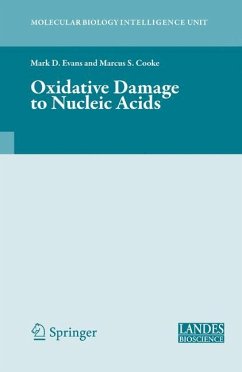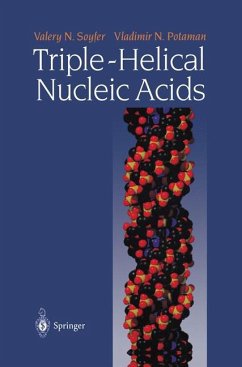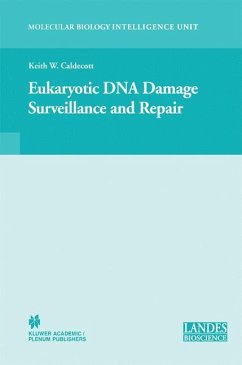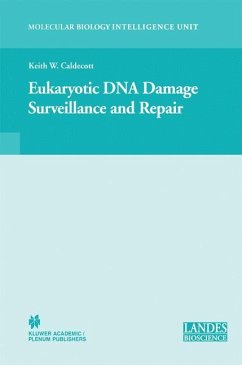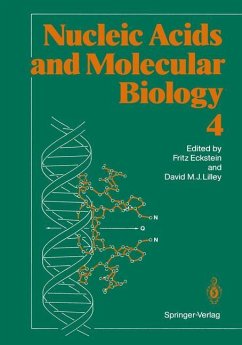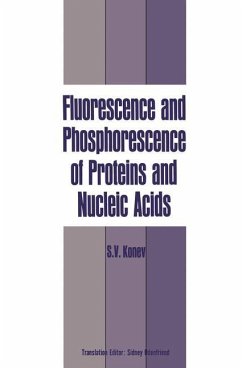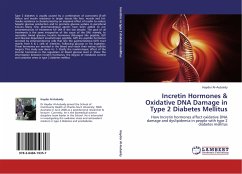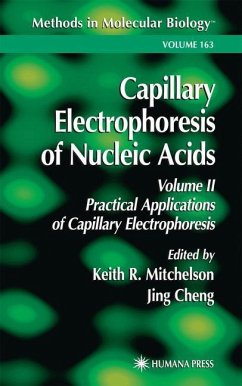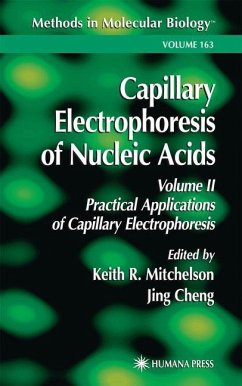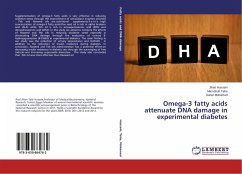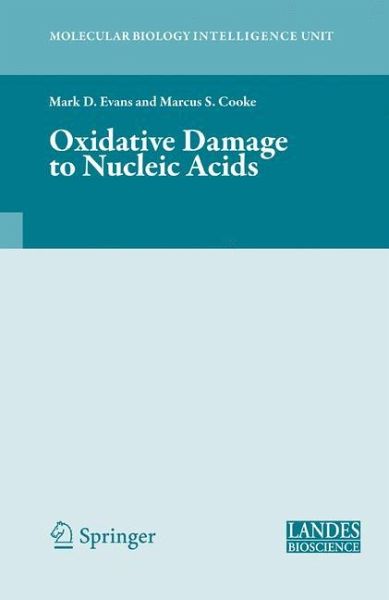
Oxidative Damage to Nucleic Acids
Versandkostenfrei!
Versandfertig in 6-10 Tagen
113,99 €
inkl. MwSt.

PAYBACK Punkte
57 °P sammeln!
This book provides an up-to-date coverage of selected topics in the area of nucleic acid oxidation. The topics have been selected to cover everything from basic chemical mechanisms, repair of damage and the biological and pathological meaning of DNA oxidation. The chapters are authored by leading, research active, international experts in the respective topics. In addition to some of the traditionally covered topics, we have included some areas that receive less attention in similar volumes, for example chapters focusing on damage to nucleic acids by halogenating and nitrating species, gene-sp...
This book provides an up-to-date coverage of selected topics in the area of nucleic acid oxidation. The topics have been selected to cover everything from basic chemical mechanisms, repair of damage and the biological and pathological meaning of DNA oxidation. The chapters are authored by leading, research active, international experts in the respective topics. In addition to some of the traditionally covered topics, we have included some areas that receive less attention in similar volumes, for example chapters focusing on damage to nucleic acids by halogenating and nitrating species, gene-specific damage, telomere shortening and damage to promoter regions. Through this approach, we recognize additionally the importance of nucleic acid damage beyond mutation and in pathological conditions other than carcinogenesis. The primary audience for the book would be research scientists and advanced postgraduate students, the book may also be of interest to clinicians with strong research interests. We would expect readers to come away from this book with a greater appreciation of the topic, particularly appraising the reader of areas that may not necessarily have been covered in such a volume before.



